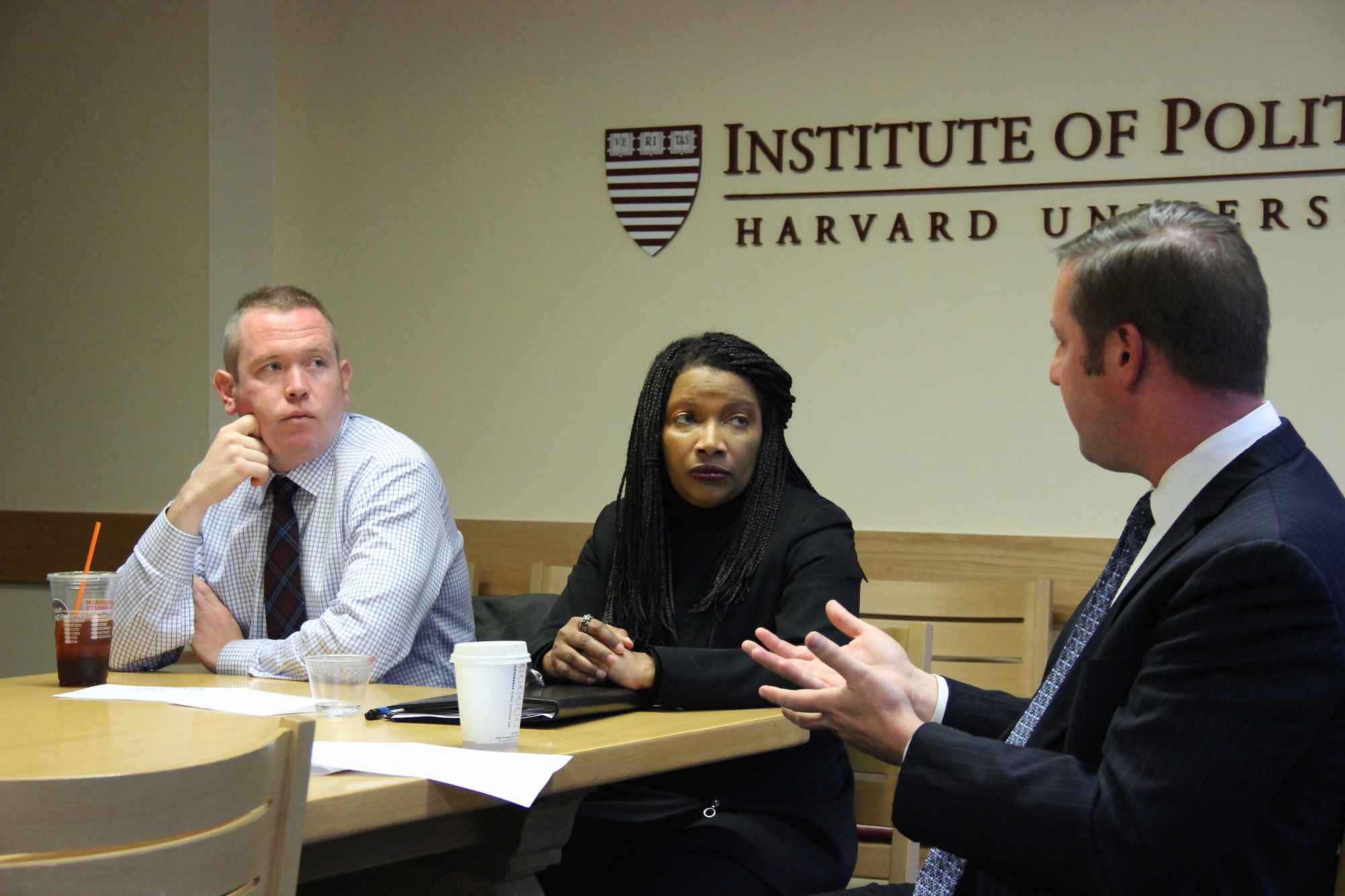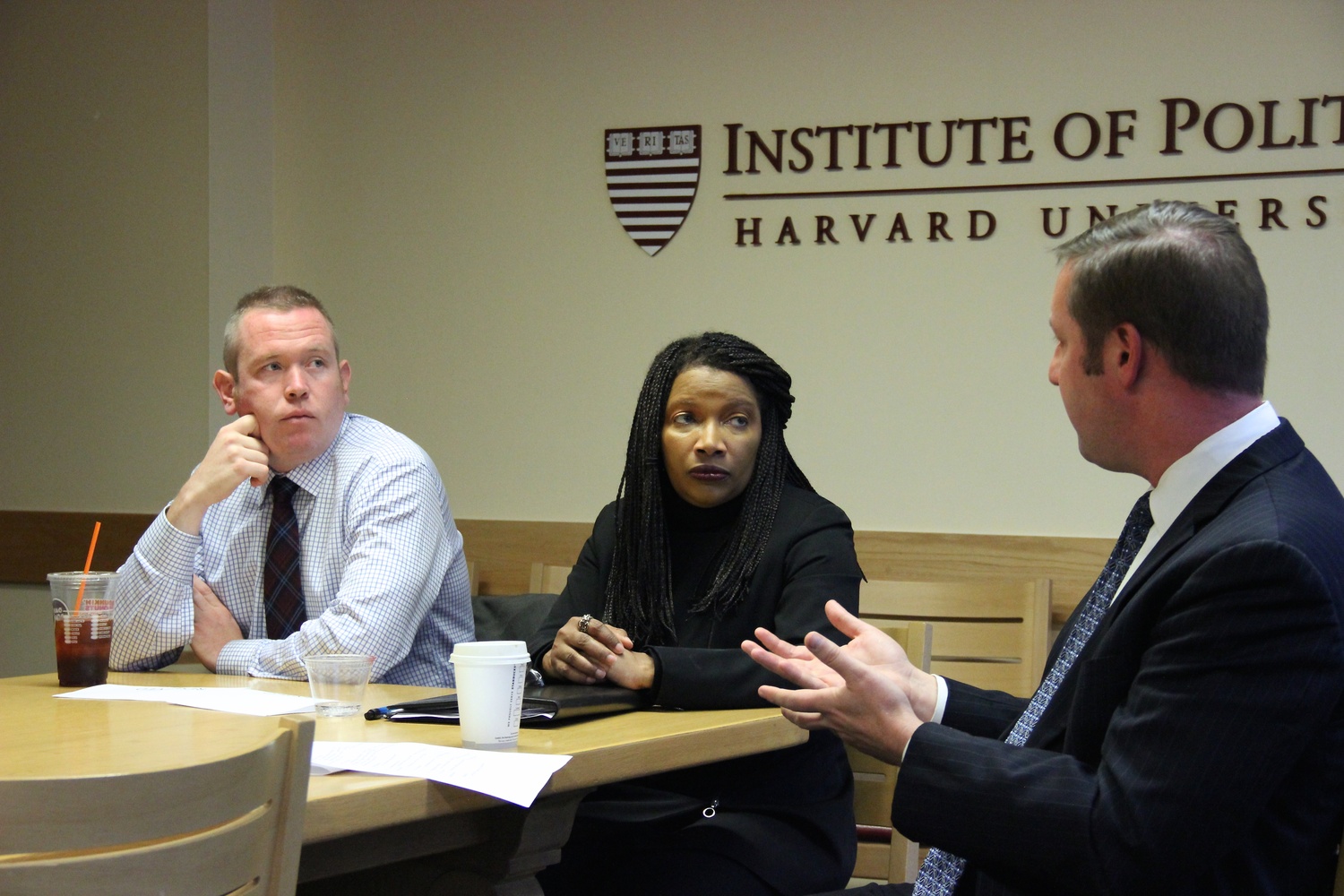
News
Harvard Quietly Resolves Anti-Palestinian Discrimination Complaint With Ed. Department

News
Following Dining Hall Crowds, Harvard College Won’t Say Whether It Tracked Wintersession Move-Ins

News
Harvard Outsources Program to Identify Descendants of Those Enslaved by University Affiliates, Lays Off Internal Staff

News
Harvard Medical School Cancels Class Session With Gazan Patients, Calling It One-Sided

News
Garber Privately Tells Faculty That Harvard Must Rethink Messaging After GOP Victory
Journalists Predict Close Mass. Gubernatorial Race

Two prominent journalists predicted a close gubernatorial election in Massachusetts and discussed next week’s midterm elections at the Harvard Kennedy School of Government Monday afternoon.
Gabrielle Gurley, a senior associate editor at think tank MassINC, and Jim O’Sullivan, a Boston Globe reporter, spoke about November’s races in Massachusetts, New Hampshire, and Maine, as well as the Massachusetts ballot questions.
Steve Poftak, director of the Rappaport Institute for Greater Boston, began the event by asking the two journalists to discuss the Massachusetts gubernatorial election.
Gurley answered immediately, saying she thought that the election for governor between Republican Charlie D. Baker ’79 and Democrat Martha M. Coakley would be closely contested.
“It is going to be a close race, and will go down to election day, if not late election evening,” Gurley said.

The two journalists then discussed the strengths and weaknesses of each candidate’s campaign strategy.
O’Sullivan commended Baker for his effort to reach out to traditionally liberal voters.
“Baker is finally starting to make the sale,” O’Sullivan said. “He is convincing people who are traditionally Democratic voters that he is a safe Republican.”
Gurley agreed with O’Sullivan. “Baker is not taking the cities for granted as Democratic, and this time around he has an urban agenda,” she said.
The speakers then turned to the race for attorney general in Massachusetts. Gurley and O’Sullivan agreed that Maura T. Healey ’92 seemed poised to win the election.
“Healey has charisma that Martha Coakley doesn’t have,” O’Sullivan said. “People are susceptible to personality and charisma as a reason to vote for one person over another.”
The two speakers then discussed the U.S. Senate election in New Hampshire between Scott Brown and Jeanne Shaheen.
“I have learned my lesson about underestimating Scott Brown,” O’Sullivan said. “Every time ads show that most of Shaheen’s votes are with Barack Obama, that helps Brown.”
Finally, the two discussed ballot questions and the significance they could have in the upcoming elections.
“Ballot questions with very high stakes prompt high turnout,” Gurley said. “In Springfield, voters may come out because of the casino repeal issue on the ballot,” he added, referencing a ballot initiative that could overturn a law which allows for the construction of up to three casinos in Massachusetts.
Gurley, with a laugh, said that Republican Paul R. LePage, running for governor of Maine, might see high voter turnout next week because of a ballot question about bear bait, which might bring conservative, pro-hunting voters to the polls.
Although O’Sullivan predicted small Republican gains in the Massachusetts State Senate, Poftak reminded audience members of the staunchly liberal political landscape within the Commonwealth.
“By doubling the Republicans in the State Senate,” Poftak said, “[O’Sullivan] means going from four to eight in a group of 40.”
The event, which was co-sponsored by the Institute of Politics, the Rappaport Institute, and the Taubman Center for State and Local Government, was attended by several dozen people.
Want to keep up with breaking news? Subscribe to our email newsletter.
